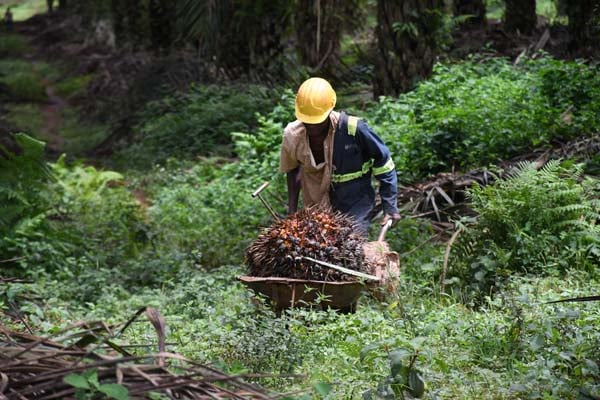Prime
Educated youth should not be riding boda-bodas, says Kasaija

Kasaija says we should not allow this situation” of educated youth with degrees riding boda-bodas to be normal. Photo / File
What you need to know:
- Matia Kasaija singles out housemaids to the Middle East, educated youth riding boda bodas and hawking all sorts of things on the streets of Kampala as some of the unemployment grey arrears that should not become normal
- Data from the Ministry of Gender indicates that at least 84,966 Ugandans, of which 55,643 were housemaids, travelled to the Middle East in 2022 in search of jobs.
- The Uganda Bureau of Statistic National Labour Force Survey released in November last year indicates that slightly more than 41 percent of youth, which represents about 10 million young people aged between 18 and 30 years, are not engaged in any productive activity.
Finance Minister Matia Kasaija has said the current levels of unemployment are a big shame and at the same too painful to see educated young Ugandans without jobs.
Speaking during the launch of the Bank of Uganda Sustainability Certification process in Kampala, Mr Kasaija said “we should not allow this situation” of educated youth with degrees riding boda-bodas to be “normal” yet Uganda is endowed with a lot of resources.
Therefore, he said, there was “need to create jobs and good jobs for that matter” to achieve meaningful growth.
“If you have travelled recently through our airport [Entebbe], the first thing you notice are hundreds of our young daughters leaving the country for household jobs to the Middle East. If you step out of your office onto the streets, the first thing you notice are hundreds of our young sons riding boda-bodas. On the same street, you cannot fail to notice hundreds of our young daughters and sons hawking all manner of things, while others walk all day in search of jobs. The most painful thing is that they are all educated. We should not allow this situation to be normal,” he said.
Whereas, unemployment has been rising over the years, it has been extremely rare for a high ranking government official to concede to the challenges that result from a large part of the population remaining without jobs.
According to the Uganda Bureau of Statistic National Labour Force Survey released in November last year, slightly more than 41 percent of youth, which represents about 10 million young people aged between 18 and 30 years, are not engaged in any productive activity.
The survey, which was conducted for the period ended 2021 also found that unemployment in the country had increased to 12 percent from 9 percent in the 2019/20 Uganda National Household Survey.

Kasaija says it is so painful to see young educated Ugandans going to Middle East to do become housemaids. Photo / File
Data from the Ministry of Gender indicates that at least an average of 7,724 migrant workers left Uganda for the Middle East on a monthly basis in 2022 in search of employment.
The 7,724 monthly average returned an annual total of 84,966, with Saudi Arabia and Qatar, taking in the largest number.
Of the 84,966, at least 77,914 went to Saudi Arabia, of which 55,643 were mainly housemaids.
Others were cleaners, security guards, waitresses and waiters and drivers.
There is no available data to highlight the number of educated youth involved in boda-boda riding.
However, the 2021/25 National Development Plan by National Planning Authority, released last year, indicated that whereas the economy has been growing at an average of 5.4 percent, it has not created enough gainful jobs to absorb a largely growing skilled youth population.
Therefore, Mr Kasaija's admission comes at a time when the country is facing a near crisis, characterised by largely high dependence levels, low productivity and a high burden on public and social investments, especially in the health care and education sector.

Kasaija says financial institutions should inject money in agriculture in order to "attract some of our unemployed youth either back to the farms or to other segments of the agricultural value”. Photo / File
Kasaija asks banks to support youth in agriculture
Meanwhile, during the same event five commercial banks signed up for the first Uganda Sustainability Certification Process, which is the first step in part of Bank of Uganda’s implementation of its five year plan.
The key part of the plan is to promote sustainability for supervised financial institutions while they do business.
Three of the five banks include Uganda Development Bank, Post Bank and Housing Finance.
Speaking at the launch of the Bank of Uganda Sustainability Certification Process, Finance Minister Mr Matia Kasaija, said there was need to address environmental risks by practicing smart agriculture, which would create jobs for young people.
Friends, he said, there is need to be deliberate on how to fund activities that help to mitigate or cope with climate change and environmental risks, especially in the agriculture.
“In fact, by addressing these risks, we will not only protect jobs in the sector, but will create additional ones, which can attract some of our unemployed youth either back to the farms or to other segments of the agricultural value,” Mr Kasaija.
The Bank of Uganda Sustainability Certification Process seeks to promote sustainable and responsible financing with the view of promoting environmental social governance.
Dr Michael Atingi-Ego, the Bank of Uganda deputy governor, said the certification process demonstrates the Central Bank’s role in implementing holistic investment that upholds the value of all stakeholders.
“The sustainability certification impetus will provide for integration of environmental social governance … for the lasting benefit of all our stakeholders,” he said, noting that efforts to promote sustainable investment is becoming a globalised issue that seeks to achieve universal protection of the environment.
Climate change has been cited as one of the biggest threats to not only the environment but to health, social and economic livelihood.




